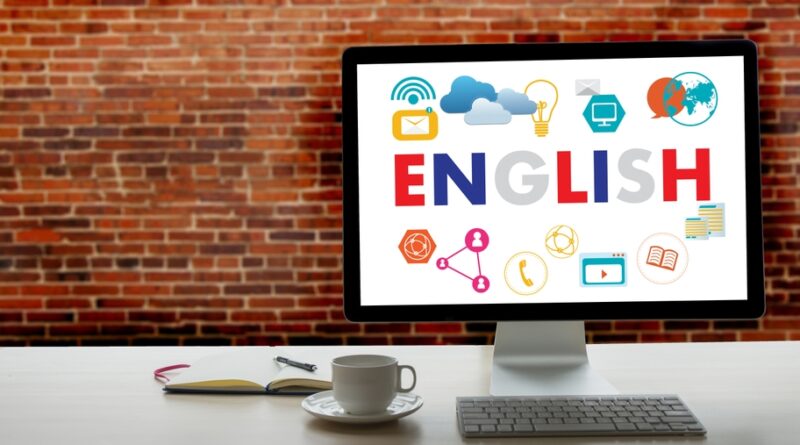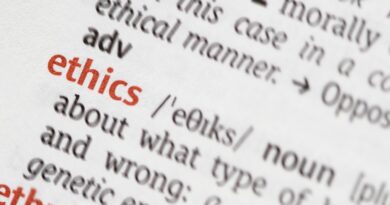Solution to the Lack of an Official Language in the U.S.
English language is widely spoken and used in various contexts in the United States. It is generally presumed to be the official language of the nation. However, this is not explicitly expressed in legislative terms, and as such it may be termed as not being the official language (Dicker, 2003). The language is used as the main instruction medium in virtually all institutions across the nation and is also used in most official contexts such as the conducting of business (Mencken, 2010). The lack of an official language necessitates the government to make a large number of translations for its official documents so as to meet the needs of various ethnicities within its states. This is necessary for all processes that involve the general populace such as voting, legal documents and other paperwork used officially by the general public such as those in medical facilities. Similarly, the use of translators becomes necessary in most public offices and set ups such as is the case in medical facilities.
According to research the use of translators and the need to make various copies of documents in different languages is a costly affair, which takes a big share of the government spending. In actual sense this is an expense that would be eliminated if there was an official language because all the translations would be unnecessary. Apart from the large amounts of costs associated with translation and the making of copies of documents in various languages, there is the challenge of inconsistencies which arise during the translation (Dicker, 2003). The translations at times may alter the originally intended meaning in a document and thus lead to miscommunication-this is a common thing whenever translations have to be made from one language to another. These are all problems that are significant, but avoidable.
The best solution to this challenge and problems would be the undertaking of legislative steps to make the language official. Of course such an undertaking is not welcome by all and as such there will be a need for extensive sensitization before the introduction of such a bill can be welcome and acceptable among the populace and legislators. In essence, legislation is the only solution that can ensure English is made official and all the related challenges and problems of lacking an official language are eliminated. The “English Language Unity Act” from 2005 presents the best solution to the problem of lacking an official language in the United States (Longley, 2005). This is because it would eliminate all costs associated with the problem and any possible inconsistencies in meaning.
Advantages of legislative Measures of Making English an Official Language in the U.S
Perhaps the first type of positive effect that can be directly felt if the “English Language Unity Act” would be passed is cost reduction. Currently, a large number of translators are paid to make translations of official government documents and this exercise is costly because they all have to be paid. Additionally, there is a need to make additional copies of the official documents in many other languages. The estimation of precisely required copies for each language may be unknown and as such there may be excessive duplication of information on to documents that may not be fully required, thus causing wastage of resources in printing. The current government expenditure is greatly constrained due to budgetary limits, which are necessitated by the tough economic times. There is a need to limit economic expenditure where necessary, and this provides one opportunity for the government to cut its expenditure by eliminating the costs of having to cater for translations which have proven to be a costly affair for all states. The proposed legislation offers the best solution towards solving the cost problems posed, which make it mandatory to make translations of documents into other languages.
The legislative measure to make English an official United States language will be advantageous only in cost reduction, but also in ensuring that there is greater uniformity and consistency of message communicated in all official documents, especially legal documents whose translations bear great significance the legal realms of making interpretations that may define legal situations. Possible conflicts in meaning in government pronouncements, regulations and laws are highly likely to occur if the documents containing such communications are reproduced in different languages so as to suite the diversity of the nation (Nnamani, 2012). This challenge can simply be eliminated if legislation would be used to declare the English language as the official United States language. This declaration would imply that even though there may be other translations for documents, the English version of these documents would be the authoritative versions that should be solely used in any context that requires decision or judgment making (Krauthammer, 2006). The undertaking would also ensure that there is no miscommunication or wrong understanding on legal issues as well as other non-legal communications.
Apart from the economic benefit of cost reduction and improvement of consistency in communication, there is bound to be a greater improvement in participation in commerce and political undertakings. In order for the population to effectively and actively participate in commerce and political life of the country, it will be advantageous for them to learn and use English as an official communication. The legislation proposed will compel most Americans to learn and use English. The knowledge acquired in the language would not only open doors which lead to materialization of the American dream with greater economic opportunities, but also will make integration of most immigrants less stressful (Nnamani, 2012). It will also enhance the immigrants capability to secure better paying jobs compared to the current state where most low paying, manual jobs are relegated to the non-English speaking immigrants (Peyton, Ranard & McGinns, 2001). This implies that there is already an incentive and bid advantage to learn English and thus also to have it as an official language, and all that is just required is the government’s exploitation through legislation. This means coercion may be less necessary.
A common language for communication imposed by legal requirements on official endorsement does not only help in ensuring uniformity and cutting of costs, but it also ensures a harmonious society. Currently the American people are ‘divided’ by different elements such as ethnicity, race, religion and original nationality. There is no need of maintaining elements that seems to add to the differentiation of people because there is a need to bring the society together. As such, there is a need to use the official language state as a means to bring about harmony in the American ‘melting pot.’ Language is a binding element for any society and the making of a legislation to make English official will greatly contribute to the development of a more connected and harmonious society because of this common mode of communication (Krauthammer, 2006).
Conclusion
In conclusion, English is the most commonly used language in America and in most official contexts. However, the language is not officially and explicitly stated as the official language. As such the government is always compelled to make translations of most official documents and official communication in to different languages that are commonly used in the United States such as Spanish, French and German. The whole exercise is costly because there is a need to pay translators and pay for printing of material in different languages- a factor that is less attractive in the current tough economic times. The best solution to this challenge is the legal implementation of legislative measures that make English the official United States language. This would eliminate the need to make translations and pay for translators and duplicate printing of messages in different languages during popular events such as voting. The legislation would save the nation a lot of money and enhance consistency in messages passed to the people. Legal interpretations are also a very important element of society and it is critical that all messages passed should be understood precisely as intended with little aberrations on the original meaning. This is only achievable if the language used for communication among all people is the same. Translations bring about alterations in meaning because as the messages get translated they at times lose their originality or sense in terms of meaning and this could negatively bear on communication and interpretation.
Additionally, the use of English as an official language is highly likely to contribute to a harmonious society and bring about coherence in communication, which is necessary for comprehensive participation in the political and economic arena. This legislation would drive most non-English speaking immigrants to learn English and this would be very crucial in ensuring that they get smoothly integrated into the American society. Additionally, it will contribute to the achievement of the American dream as most of the people including immigrants will be able to have equitable access to employment opportunities and thus improving their livelihoods. In order to realize all benefits or advantages of having English as an official United States language there is a need strongly campaign for the legislation of the bills that will ensure the language is made official for the nation through law.
References
Dicker, S. (2003). Languages in America: A Pluralist View. Multilingual Matters
Krauthammer, C. (2006).Ten Reasons to Make English the Official Language of the United States, Time Magazine.
Longley, R. (2005). Bill Would Make English ‘Official’ U.S. Language: Would require English comprehension for naturalization, retrieved on November 11th 2017 from https://www.thoughtco.com/bill-would-make-english-official-us-language-3321861
Mencken, H. (2010). The American Language: A Preliminary Inquiry into the Development of English in the United States. Cosimo, Incorporation.
Nnamani, S. (2012). Puerto Rico Primary Sparks Debate: Should English Be the Official Language of the United States?
Peyton, J., Ranard, D. & McGinns, S. (2001). Heritage Languages in America: Preserving a National Resource. Center for Applied Linguistics.




